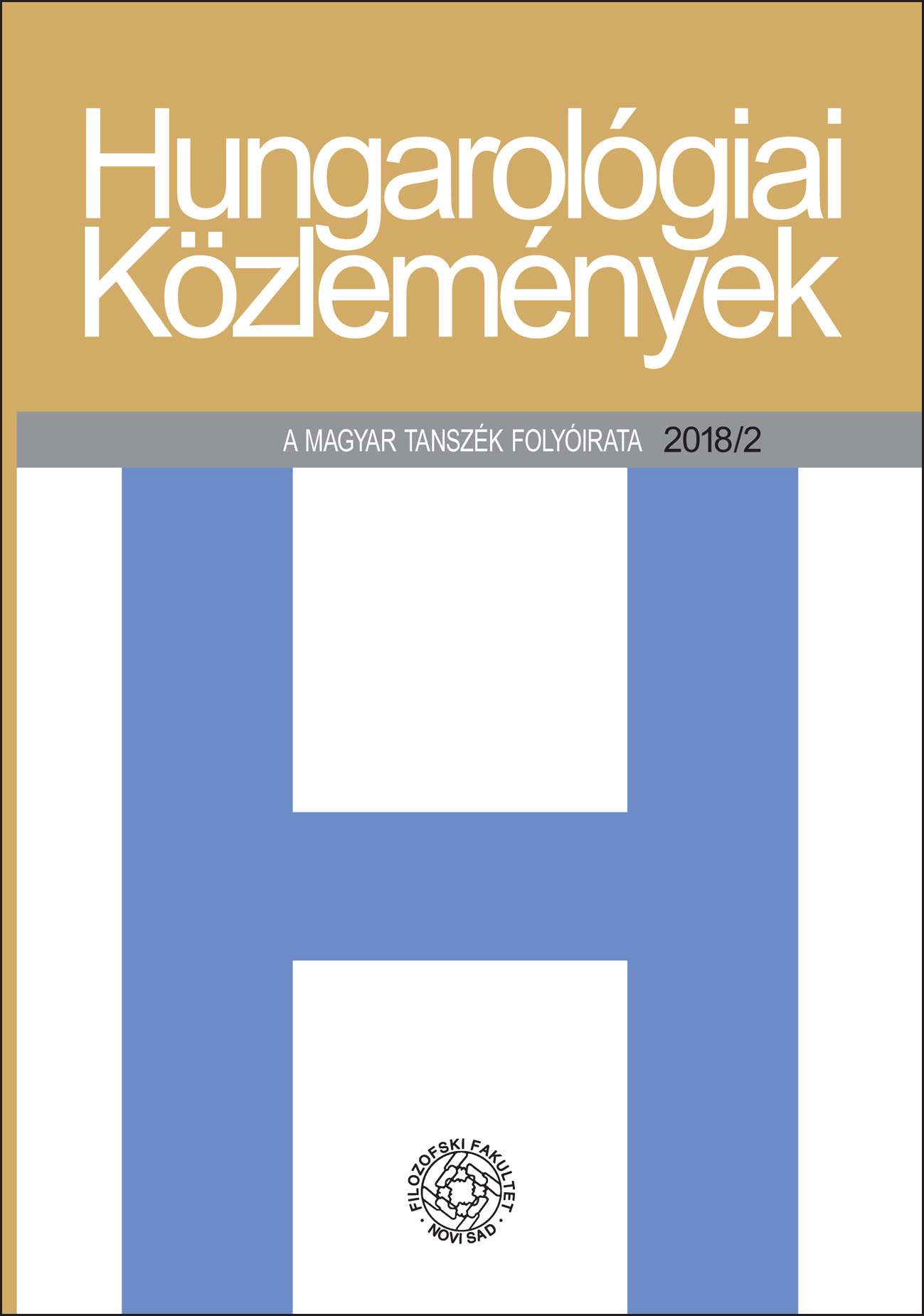A NEMZETISÉGEKRŐL RAJZOLT IDEGENKÉP JÓKAI 1848–49-ES TÉMÁJÚ MŰVEIBEN
Absztrakt
A tanulmány különböző műfajú Jókai-szövegek idegenképét hasonlítja össze. A kutatás tárgyát olyan művek képezik, melyeknek témája az 1848–49-es forradalom és szabadságharc, mert ezek szembesítenek a legélesebben a nemzetiségekhez mint idegenhez való viszonyulás kérdésével. Feltűnő a különbség a regények és novellák árnyalt reprezentációja és a tényirodalomnak szánt szövegek szemlélete között. A különbségek okának megvilágításához a narratológiai szempontok mellett az irodalomtörténeti kontextus, a XIX. századi historiográfiai témájú írások vizsgálata visz közelebb. Ezek egy része az asszimiláció eszményét fogalmazza meg a nemzetiségekkel kapcsolatban. Jókai, az igazság relativitását fölismerve, föltehetőleg nem hitt ebben a szemléletben, de ellent sem mond a történetírói kánonnak, így történetírásában mellőzi e kérdés alaposabb vizsgálatát. Életművének ismertebb része, a regények és novellák, a toleranciára nyitott, ugyanakkor nemzeti értékhez ragaszkodó alkotót mutatja.
Hivatkozások
Dregus Ágnes. 2004. Alternatív történetek: Jókai Mór Forradalmi csataképek 1848 és 1849-ből című novellaciklusának beszédmódjáról. In Simpozion, szerk. Berszán István–Rodica Baconsky. 87–101. Kolozsvár: Editura Echinox.
Fried István. 1999. Mítosz, nosztalgia, kulturális emlékezet Kelet-Közép-Európa irodalmaiban. In Nemzeti romantika és európai identitás: Tanulmányok a romantikáról, szerk. Cséve Anna. 145–154. Budapest: A Petőfi Irodalmi Múzeum és Kortárs Irodalmi Központ.
Jókai Mór–Bródy Sándor–Rákosi Viktor szerk. 1898. Ezernyolcszáznegyvennyolcz. Budapest: Révai Testvérek Irodalmi Intézet R.T. Reprint kiadás: Kossuth Kiadó (é. n.).
Jókai Mór. 1960. Írások életemből: Önéletrajzi írások. Budapest: Szépirodalmi Könyvkiadó.
Jókai Mór. 1966. Jókai Mór összes művei: Regények 39–40. Akik kétszer halnak meg I–II. Sajtó alá rendezte Gergely Gergely. Budapest: Akadémiai Kiadó.
Jókai Mór. 1969. Jókai Mór összes művei: Regények 66. A mi lengyelünk. Sajtó alá rendezte T. Hajós Éva. Budapest: Akadémiai Kiadó.
Jókai Mór. 1969. Jókai Mór összes művei: Regények 67–68. A magyar nemzet története regényes rajzokban I–II. Sajtó alá rendezte Téglás Tivadar–Végh Ferenc. Budapest: Akadémiai Kiadó.
Jókai Mór. 1970. Jókai Mór összes művei: Regények 69–70. Egy az Isten I–II. Sajtó alá rendezte Szekeres László. Budapest: Akadémiai Kiadó.
Jókai Mór. 1989. Jókai Mór összes művei: Elbeszélések 2/A. Sajtó alá rendezte Győrffy Miklós. Budapest: Akadémiai Kiadó.
Jókai Mór. 1994. Jókai Mór munkái. Gyűjteményes díszkiadás: Forradalmi és csataképek, sorozatszerk. Lukácsy Sándor. Budapest: Unikornis Kiadó.
Kovacsóczy Mihály. 1841. Nézetek a historiographia körül. Literaturai Lapok 27: 113–115.
Mitu, Sorin. 2006. Românii în opera romancierului Jókai Mór. In Transilvania mea. Istorii, mentalităţi, identităţi. 281–297. Iaşi: Polirom Kiadó.
Nyilasy Balázs. 2005. A modern hősrománc: A kőszívű ember fiai. In A románc és Jókai Mór. 72–106. Budapest: Eötvös József Könyvkiadó.
Pénzes Ágnes. 2012. Történelem és reprezentáció: A Jókai-regények forradalomképe. Nyelv- és Irodalomtudományi Közlemények 56 (1): 3–22.
Pénzes Ágnes. 2013. A mítosz és azon túl: Jókai Mór Forradalmi és csataképek 1848 és 1849-ből című novellaciklusának beszédmódjáról. Erdélyi Múzeum 75 (1): 34–50.
Sőtér István. 1979. Jókai Mór. In Félkör. 283–396. Budapest: Szépirodalmi Könyvkiadó.
Sőtér István. 1979. Jókai útja. In Félkör. 396–471. Budapest: Szépirodalmi Könyvkiadó.
Szajbély Mihály. 2009. A kultúrtranszfer speciális esete: Jókai és az egyszerű formák 19. századi mutációi. In On the road – Zwischen Kulturen unterwegs, szerk. Ágoston Zénó Bernád–Csire Márta–Andrea Seidler. 44–52. Bécs–Berlin: Lit Verlag.
Szajbély Mihály. 2010. Jókai Mór. Pozsony: Kalligram Kiadó.
Szilasi László. 2000. A selyemgubó és a „bonczoló kés”. Budapest: Osiris-Pompeji.
Trefort Ágoston. 1839. Elmélkedések a’ történettudományról. Társalkodó 10: 1.








